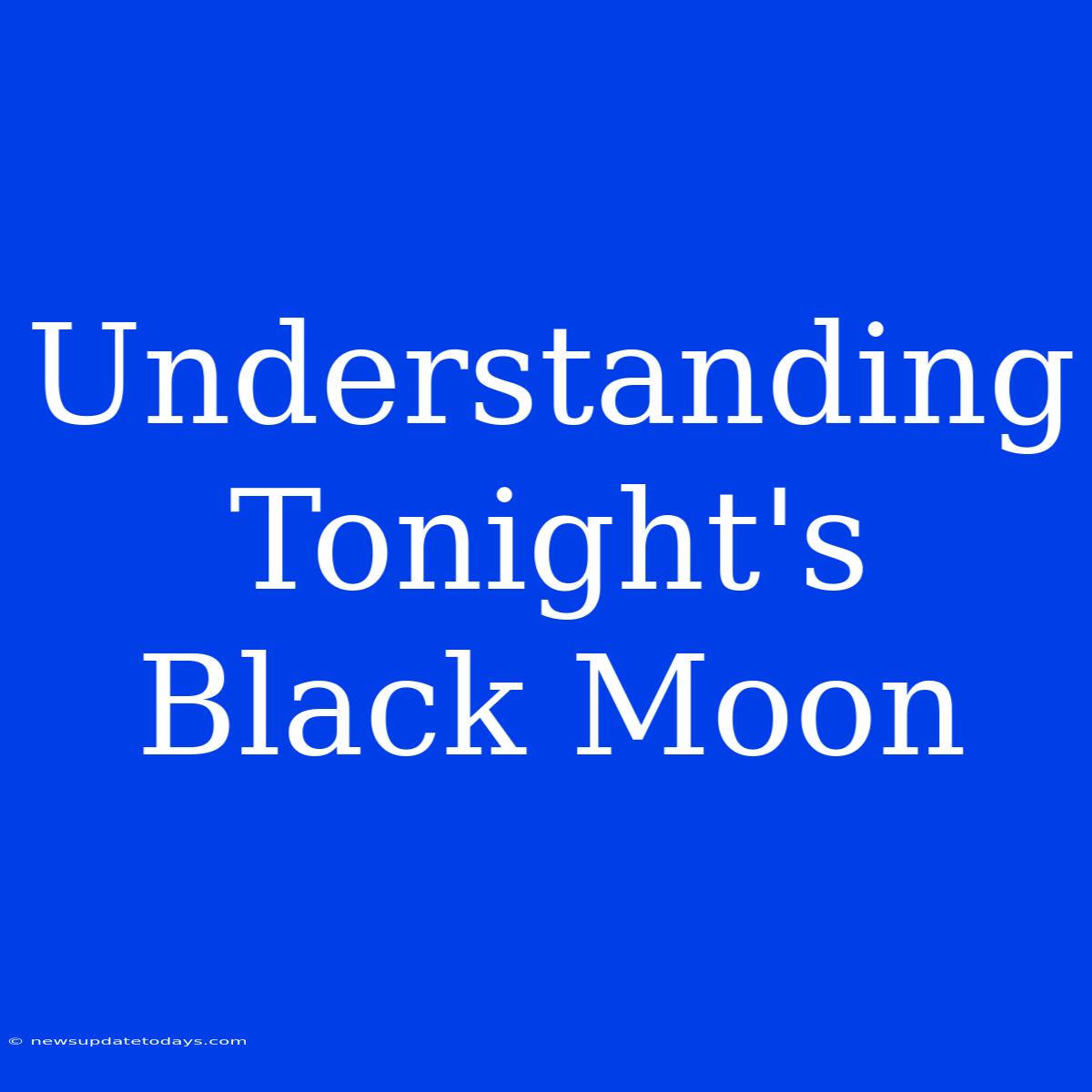Understanding Tonight's Black Moon: A Rare Celestial Event
Tonight's sky holds a special treat for astronomy enthusiasts: a Black Moon. But what exactly is a Black Moon, and why is it so rare? This article unravels the mystery surrounding this fascinating celestial event.
What is a Black Moon?
Unlike its ominous name, a Black Moon isn't a malevolent cosmic entity. It simply refers to the second new moon in a single calendar month. Because the lunar cycle is roughly 29.5 days long, and most months have 30 or 31 days, it's possible for two new moons to occur within the same month. This second new moon is what we call a Black Moon. It's important to distinguish this from a "Black Moon" in the sense of the third new moon in a season with four new moons.
Why is it rare?
The rarity of a Black Moon stems from the slight mismatch between the lunar cycle and the length of calendar months. It's not a regular occurrence, making tonight's event particularly special. The precise frequency varies depending on the calendar year and the lunar cycle's alignment, but generally, a Black Moon occurs only every 2.5-3 years.
Observing the Black Moon:
Unfortunately, you won't be able to see a Black Moon in the same way you observe a full moon. A new moon is essentially invisible to the naked eye because the sunlit side of the moon is facing away from Earth. However, the absence of moonlight can create unique opportunities for stargazing. The dark skies provide an excellent backdrop to observe fainter stars and constellations, making this a wonderful night for amateur astronomers.
Black Moon and Mythology:
Throughout history, various cultures have attributed symbolic meanings to lunar events, and the Black Moon is no exception. Some associate it with introspection, new beginnings, or a time for cleansing and renewal. The scarcity of the event only adds to its mystical allure.
More than just a dark moon:
Tonight's event isn't simply about the absence of a visible moon. It's a chance to reflect on the celestial cycles, to appreciate the intricate workings of our solar system, and to connect with the natural rhythms of the universe. Even though the moon itself may be hidden, the impact of its absence is felt.
Conclusion:
Tonight's Black Moon is more than just a rare astronomical occurrence; it's an opportunity for contemplation and connection with the cosmos. While we can't see the moon itself, we can appreciate the unique conditions it creates for stargazing and reflection. So, step outside tonight, look up, and appreciate the wonder of this unusual celestial event! Remember to check local weather conditions before heading out for optimal viewing. Enjoy the darkness, and clear skies!

